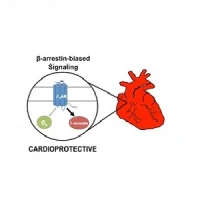One-third of patients hospitalized with heart failure for the first time have not returned to work one year later, reveals a study presented at Heart Failure 2016 and the 3rd World Congress on Acute Heart Failure by Dr Rasmus Roerth, from Copenhagen University Hospital in Copenhagen, Denmark.
Stated Dr Roerth, “Employment is crucial for self esteem and quality of life, as well as being of financial importance, in patients with all kinds of chronic illness. Inability to maintain a full time job is an indirect consequence of heart failure beyond the usual clinical parameters of hospitalization and death. Most information on heart failure is derived from studies in older patients since they are the majority. This has led to a knowledge gap regarding the impact of living with heart failure among younger patients, who perhaps have the most to lose from the condition.”
The study included 11, 880 heart failure patients of working age (18 to 60 years) who were employed prior to being hospitalized for heart failure. Information on age, length of hospital stay, gender, education level, income, comorbidities and working status was obtained from Danish nationwide registries. Since all Danish residents have a unique personal identification number, this makes it very easy to identify them in any health registry.
The researchers found that one year after being hospitalized for heart failure for the first time, 68% of patients had returned to work, but 25% did not and 7% had expired.
Younger patients (18 to 30 years) were more than three times more likely to return to work than older patients (51 to 60 years). This was attributed to lower co-morbidity in younger people and also a greater desire to make a living. Also observed that people with higher education were more likely to return to work compared to those with minimal education. This was attributed to the less physically demanding jobs with higher academic achievements.
Finally, patients were less likely to return to work if the hospital admission was greater than 7 days or if they had a history of chronic kidney disease, stroke, COPD, cancer or diabetes. The study recommends that physicians not be afraid to advise patients to return because there are clearly some people who are motivated to go back to being employed.
Source: Heart Failure 2016
Image Credit: Pixabay










